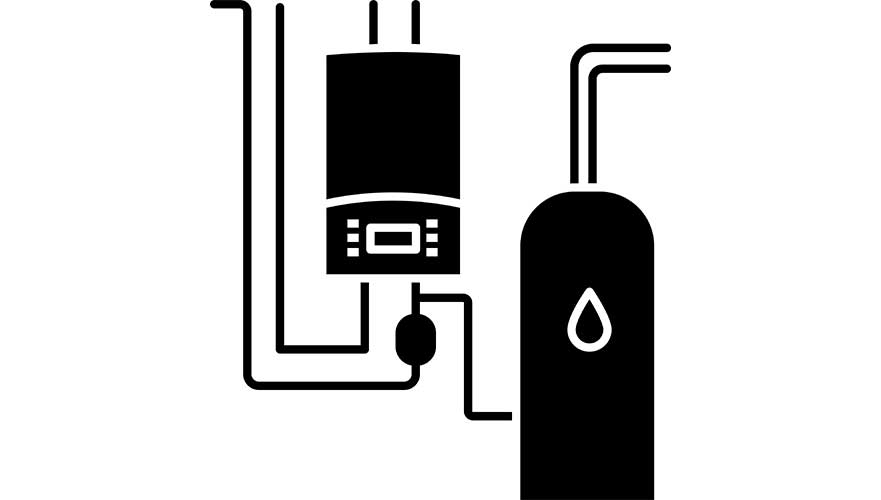If you discover that your water heater needs to be replaced in the not so distant future, you’ll have to choose which type of water heater you want, tank versus tankless water heater. It’s important that you do your homework first in making your selection.
Heating water in your home accounts for nearly 20 percent of home energy costs. Today’s new efficiency standards result in water heaters less than 55 gallons having about a 4 percent boost in efficiency. Water heaters over 55 gallons may reduce your utility costs 25-50 percent depending on the technology design of the heater.
What is considered more important is the first-hour rating (FHR) for storage-tank water heaters and the gallons-per-minute rating (GPM) for tankless water heaters. These FHRs and GPMs tell you how much hot water the heater can deliver over a set period of time.
Here are some of the differences between storage tank and tankless water heaters:
Storage Tank Water Heater
These are the most common type of water heaters and consist of an insulated tank in which water is heated and stored until needed. Storage tank water heaters use either fuel, such as natural gas or electricity to heat water.
In a fuel-burning system, a thermostat triggers the system to burn fuel for heat when the water’s temperature falls. When the temperature reaches the set point, it triggers the system to stop burning fuel. This keeps your water at 140 degrees in the tank, but mixes it with cold water to lower the temp to 120 degrees before it reaches the tap. The water then flows from a pipe on top of the water heater. They have a temperature and pressure-relief valve, which opens if either mechanism exceeds a pre-set level.
Natural gas water heaters typically use about half the energy and cost less to run than electric water heaters, but gas models cost more up front. As a general rule, a tank style water heater will last, on average, 8 to 12 years. The size of the tank also fluctuates depending on the needs of the household. Generally speaking, a 30-40 gallon tank for 1- 2 people, 40-50 gallon tank for 2- 3 people: 50-60 gallon tank for 3- 4 people and 60-80 gallon tank for 5+ people.
Additionally, a storage tank water heater is a bulkier unit that must have space for placement. Traditionally, storage tank water heaters are located in the basement next to the furnace and can only supply you with enough hot water as fits inside the tank.
Tankless (On-Demand) Water Heater
As the name suggests, tankless water heaters heat the water only when you turn on the faucet and offer a continuous supply of hot water, which is ideal for a busy household.
Tankless water heaters use heating coils to heat the water as needed and they’re more energy-efficient than storage tank. The down-side is that they provide only a limited flow of hot water per minute (about 3.5 gallons). They’re used more often by people who typically aren’t drawing water for more than one use at a time, such as running a shower and dishwasher simultaneously. They are also best for homes that use natural gas.
According to Natural Resources Canada, an ENERGY STAR certified tankless water heater uses 30% less energy, on average, than a storage tank type. Saving energy saves money and reduces your carbon footprint. In addition, you may be eligible for a government rebate of $300 to $500 if you opt to install a qualified tankless water heater in your home.
Size of Water Heaters
Tankless water heaters are compact in size. They can often be installed in a closet or pantry closer to the actual faucets for immediate hot water flow without the wait. Water heater tanks, on the other hand, are quite large and are installed in your basement.
The Bottom Line
Both systems have advantages and disadvantages and only you can decide which the best is for your household. Although tankless water heaters have a higher initial cost, they will last longer than conventional systems, have lower operating and energy costs, more compact and very dependable.
For water heater installation in the Hamilton Ontario region, contact Wentworth Plumbing today.

